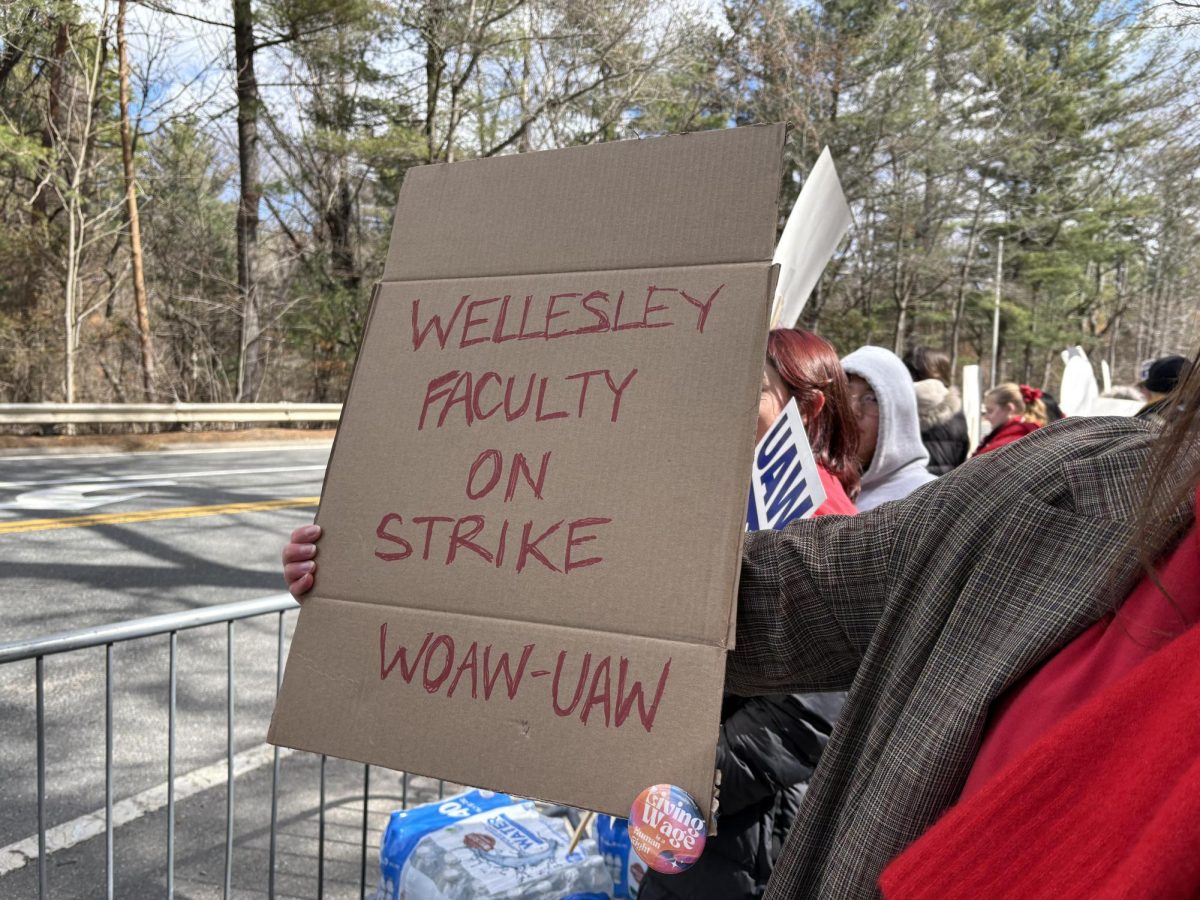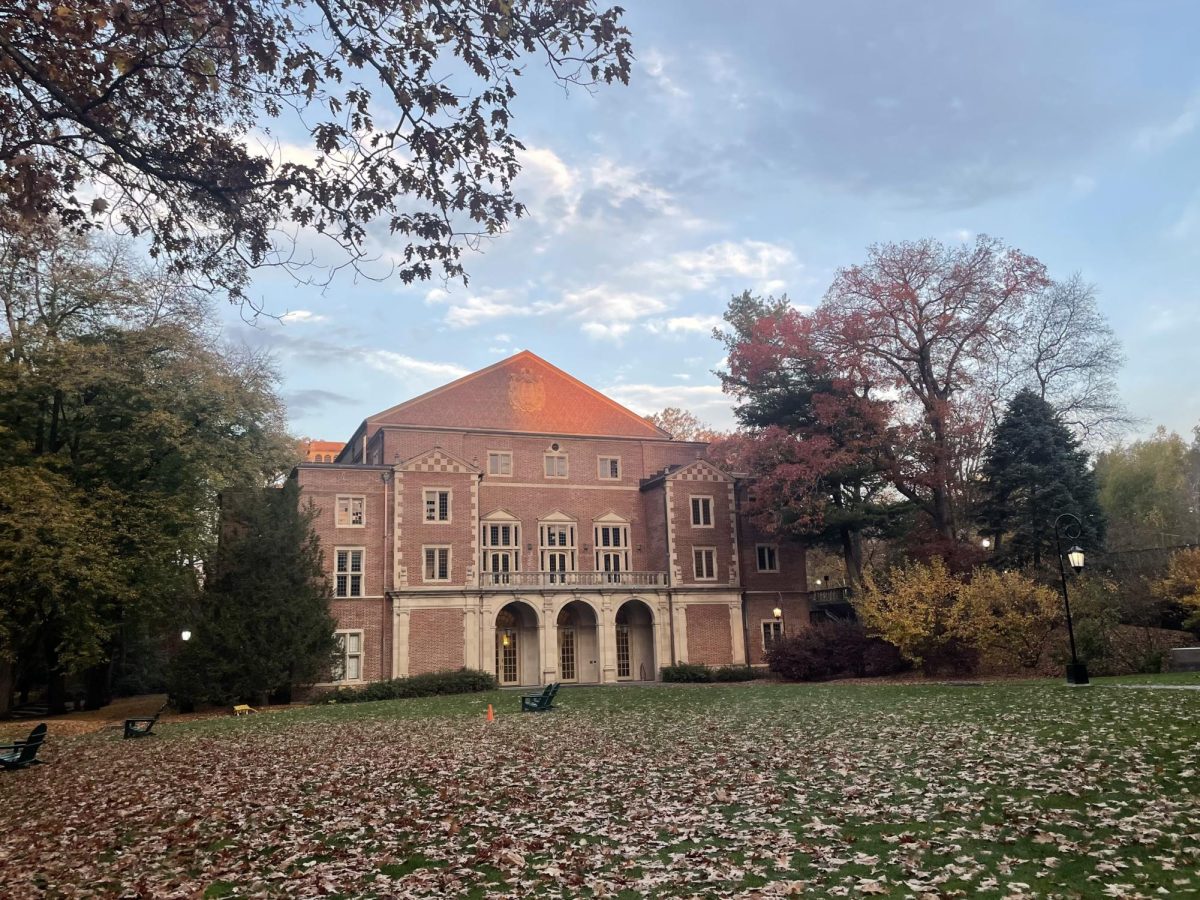On Oct. 13, 2022, approximately 65 students and faculty joined Wellesley Students for Justice in Palestine (SJP) outside of Green Hall to support students calling for the liberation of Palestine. The protest was organized after students from The Wellesley News’ editorial board were harassed online, with eight students having their faces and names published on social media, for an editorial in support of Palestinian liberation. The editorial, which also endorsed the BDS (Boycott, Divestment, Sanctions) Movement and Wellesley SJP, had provoked controversy after citing the Mapping Project.
“Wellesley College administration recently made a statement that resulted in students being doxxed, threatened and subject to racist bigotry,” SJP’s flier promoting the sit-in stated. “We vehemently oppose the incitement of harassment that has been fueled by the Wellesley College administration.”
The protest was initially slated to occur in Green Hall. On Oct. 12, Class of 2023 Class Council President, Alex Hussey ’23, was informed by Dean of Students Sheilah Horton that the protest must be moved outside due to safety concerns. According to Dean Horton’s email, because the sit-in’s flier was reposted by those outside the Wellesley community, the protest could not happen in the academic building. Additional security was also present at the event.
“This is so moving to see so many people here in Wellesley, which we know is on Massachusett land,” one of the leaders of the protest said. “It is no surprise that the administration is siding with settlers and colonizers because they are of the same class of supporting imperialism and capitalism and colonization.”
Several protesters who attended expressed similar concerns to Wellesley SJP over the College’s response to The News. Bridget* said that they were displeased with administration overall, especially given that no public follow-up statement was sent to the student body regarding the harassment. According to them, President Johnson’s email put students in danger.
Similarly, Walden* ’23 said that they believe the email “did more harm than good.”
“I feel like it’s really disappointing because no one had [made] any correlation between antisemitism and the article until PJ said it,” Iqra Ghaffar ’24 said.
Since Green Hall was locked to prevent students from coming into the building, the protest became a march from the Academic Quad to the president’s house.
When the protesters arrived, President Johnson came out of her house to speak to them.
“The intent of the statement was not an affront, the intent was a statement against a pernicious and violent producing organization. It had nothing to do with denigrating or nothing against the Wellesley News,” President Johnson said. “If there was something in that message that offended you or hurt you, I am sorry.”
The protest moved onto the yard in front of President Johnson’s house. Because the yard is College property, the organizers made it clear that they were not trespassing. Afterwards, students migrated from President Johnson’s front yard to the sidewalk and eventually made their way back toward the direction of the Academic Quad, where they dispersed from there.
“What we need is dialogue,” Johnson said in her remarks to the protesters. “You have the right to protest. We also need dialogue about these issues. This is what Wellesley is about. It is about being able to have civil dialogue on these topics.”
Ultimately, attendees hoped that the protest would raise awareness about the relationship between administration and student organizations.
“Hopefully this will make the administration aware of something that we can do to protect students,” Elaine Sun ’23 said. “I also feel that it’s unprecedented that they targeted a student organization in this way and how it’s so specific instead of making their message clear in another way.”
*Names changed to protect students’ privacy






